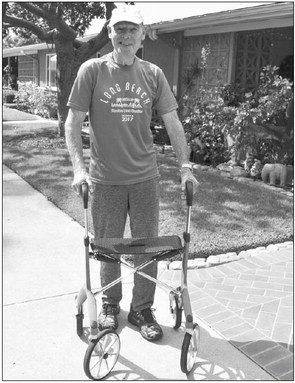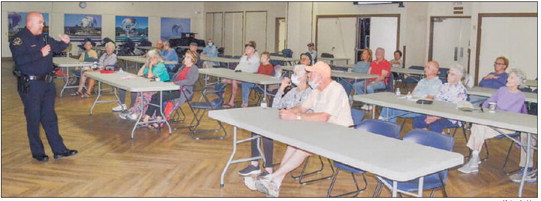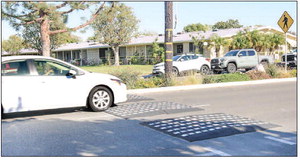Legacy Runner doesn’t give up


by Patty Marsters
pattym@lwsb.com
Tom Pontac started running at age 41. He was never an athlete, but at the time, he was in an unhappy marriage and felt he was always doing everything for everyone else. This would be something he could do for himself. “I thought, if I could run a 5K or 10K, that would be wonderful,” he recalls. “It was something I could do that made me feel special.”
He ran his first marathon when he was 42. “I didn’t have a lot of speed,” Pontac says, “but I had endurance.”
And then he just kept running.
Now, at age 85, Pontac just completed the annual Long Beach Marathon as a Legacy Runner, one of about a dozen people who have completed all 37.
“I actually finished before Sunday (the day of the race),” he says. “They allow us older runners to run virtually.”
Though many of the more than 250 races he’s competed in were full marathons, Pontac now does half marathons—which are still impressive at 13.1 miles. “The past few years have been tough,” he says, noting a cancer diagnosis (now in remission), Parkinson’s disease and an allergic reaction to a sulpha drug about eight months ago that led to Stevens-Johnson Syndrome. “It takes all the energy out of you,” he says.
Despite all that, Pontac tells himself—and others—to never give up. “No matter what it is in life, that’s the key: Don’t give up.”
It’s good advice that has helped him many times in life, but especially with marathons. Instead of looking at the full distance, Pontac says, people should focus on shorter pieces: get to the next tree, then to the next one, etc. “You have to chop it up into manageable situations. Don’t stop.”
A few years ago, he started using mobility aids to help keep him upright on the course, as Parkinson’s can affect a person’s balance. In the Oct. 10 race, he used the ultra-light Let’s Fly rollator sent to him by Trust Care. “I can’t—or shouldn’t—run with a rollator,” he says, “but I can walk fast.”
Joining him often is his beloved wife of 25 years, Jeanne. The couple has competed in races around the globe. “How many people are lucky enough to run marathons, much less with their wife?” Pontac asks.
Pontac exercises every day for an hour. Every Monday, he joins the Leisure Leggers, a club that’s been active for around 21 years and of which he says he’s “president for life,” for a 1.75-mile trek. In addition, he boxes twice per week as part of a strenuous program specifically for people with Parkinson’s.
“I tell people, ‘I have Parkinson’s, but Parkinson’s doesn’t have me,’” he says. Though it’s a hard diagnosis to get, Pontac says, it’s not the end of the world. He had initially worried that people would think he was pitiful and weak. But he actually has found the opposite to be true. “People tell me I’m their hero,” he says proudly. And it’s not just older folks. “Teens come up to me and tell me I’m terrific and ask me to pose for photos with them. . . . People will accept you.”
At his age, Pontac usually comes in first in his division. “Granted, at my age, there’s not many in my group,” he says with a laugh. He tells seniors who participate in races, especially his fellow Leisure Leggers, to take five minutes after they finish to “drink their beer, water, whatever, then look at the people coming in behind you who are younger, stronger. And remember: You came in ahead of them.”


